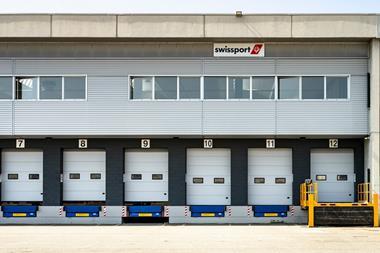Northern UK airports can become the ‘beating heart’ of regional development to establish global connectivity for the Northern Powerhouse project as an investment alternative to London in a post-Brexit world.
Business and civic leaders from the north of the UK will make this call for a UK government commitment during an event at Manchester Airport.
The call for action comes ahead of the deadline on submissions for the government’s aviation strategy green paper.
They will cite figures from the forthcoming NatWest Northern Powerhouse PMI (Purchase Managers Index) report, which suggest that the Northern Powerhouse is making good progress, “outperforming London in 29 out of the previous 36 months, but more still needs to be done”.
Lord Jim O’Neill, vice-chair of the Northern Powerhouse Partnership, and Andrew Cowan, Manchester Airport chief executive, are among those saying that the creation of a “super-connected, productive and internationally competitive Northern Powerhouse is not just important to the North itself, but sits at the heart of the desire to create a balanced and outward facing UK”.
They will say that direct access to the world’s most important economies is critical to the creation of “internationally-significant centres of excellence” in fields like advanced manufacturing, technology, energy and life sciences in the North.
The event takes place at Manchester Airport’s new pier, which opened in April and is the first phase of its wider £1bn investment to be delivered, including expanding Terminal 2 by more than 150% to become the airport’s primary terminal, helping unlock the potential of Manchester’s existing two runways.
Said a spokesperson for the Northern Powerhouse: “This spare runway capacity, coupled with this investment, demonstrate that Manchester Airport, along with other gateways in the North, have the capability to play a leading role in rebalancing the economy and taking pressure away from London and the South East, in the short, medium and long term.
“Securing direct links with high-growth economies – as opposed to via connections at domestic or overseas hubs – is what will do most to increase trade, investment and educational links to and from the North.
“Evidence gathered following the launch of new services to the likes of China in recent years has shown that hundreds of million pounds of annual economic benefit can be generated as a result of direct connectivity being established.”
Manchester airport’s long-haul catchment area places around 22m people and 60% of all UK businesses within a two-hour drive time.
Lord O’Neill said: “Access to the world’s most important markets is key to the North realising its true potential. Across the Northern Powerhouse, we are seeing significant private sector investment in airports, demonstrated nowhere better than here at Manchester Airport.
“That ambition should be matched by government support for maximising the potential of Northern airports through the Aviation Strategy process.
“We need major investment that will allow the North’s economic corridors to be better connected, attracting investment, creating jobs as well as attracting overseas organisations to discover a connected Northern Powerhouse through Manchester Airport, which with direct flights already to destinations like China, Hong Kong, Singapore and Ethiopia, is key.”
Cowan said: “Manchester Airport is a national asset, providing the north with direct connectivity to more than 210 destinations around the world.










